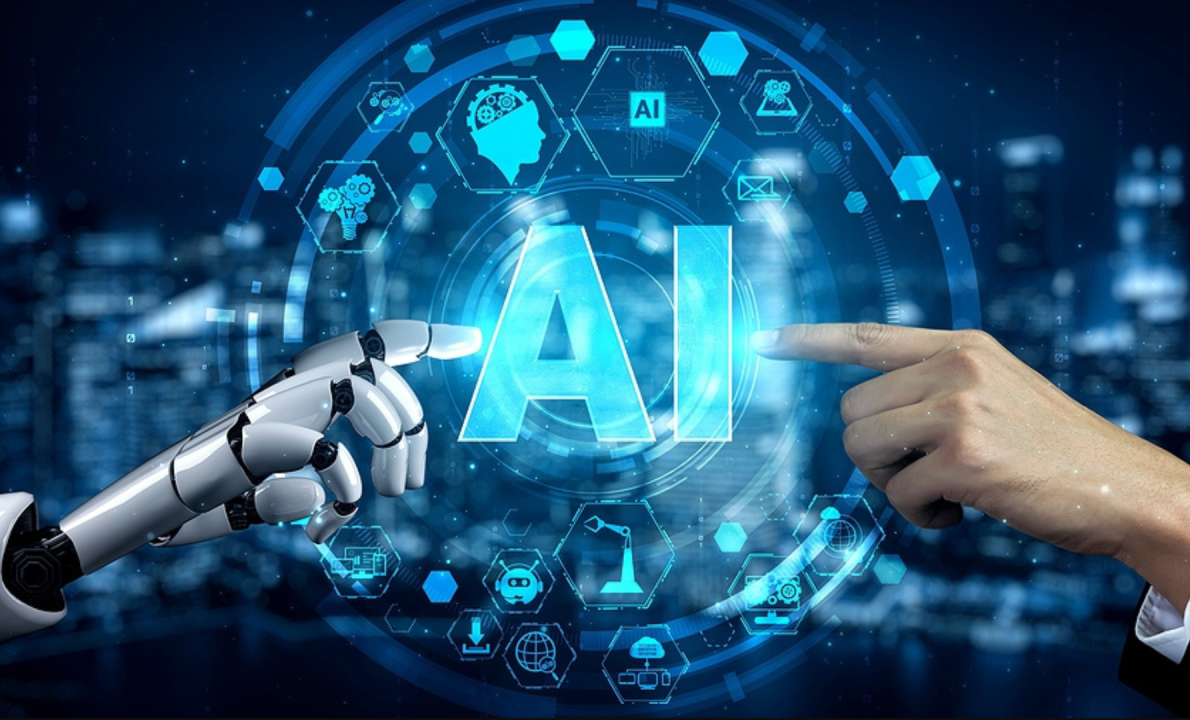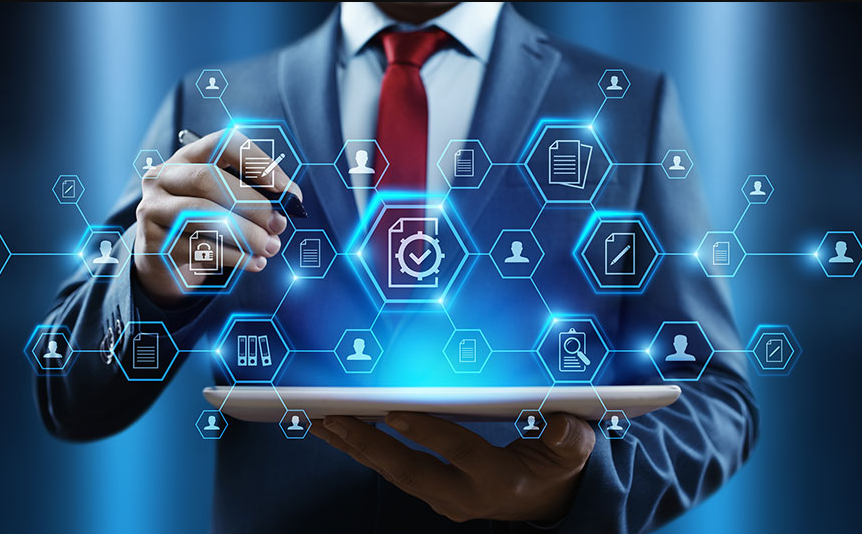How Artificial Intelligence Is Changing Everyday Life
How Artificial Intelligence Is Changing Everyday Life
Artificial Intelligence (AI) is no longer a futuristic concept—it’s already a significant part of our daily lives. From unlocking your smartphone with facial recognition to receiving personalized recommendations on Netflix or Amazon, AI plays a powerful role in the way we live, work, and interact with the world. As AI continues to evolve, its influence is expected to deepen across almost every aspect of society.
In this article, we’ll explore how AI is changing everyday life in practical, visible ways, and what this means for the future.
What Is Artificial Intelligence?
Artificial Intelligence refers to the development of computer systems that can perform tasks typically requiring human intelligence. These tasks include learning, problem-solving, recognizing patterns, understanding language, and making decisions.
There are two main types of AI:
- Narrow AI: Designed for specific tasks (e.g., voice assistants, image recognition).
- General AI: A still-theoretical form of AI that can perform any intellectual task a human can.
Today, we primarily use narrow AI, and it’s already making a massive impact.
1. AI in Smartphones and Personal Devices
One of the most common applications of AI is right in our pockets. Modern smartphones are equipped with AI-driven features designed to enhance user experience.
Key Uses:
- Voice Assistants: Siri, Google Assistant, and Alexa use natural language processing to understand and respond to voice commands.
- Facial Recognition: AI algorithms enable quick and secure unlocking of devices.
- Photo Management: AI helps organize and enhance images by identifying faces, objects, and locations.
- Smart Replies and Predictions: Email and messaging apps use AI to suggest replies or predict what you’re about to type.
These tools make everyday communication and tasks faster, smarter, and more intuitive.
2. AI in Home Automation
AI is at the heart of smart home technology, which allows devices to learn from behavior and automate tasks to improve comfort, convenience, and energy efficiency.
Examples:
- Smart Thermostats (like Nest): Learn your schedule and preferences to optimize heating and cooling.
- Voice-Controlled Smart Speakers: Control lights, appliances, and entertainment systems with voice commands.
- Security Systems: AI-enabled cameras can distinguish between people, pets, and potential intruders, reducing false alarms.
With AI, our homes are becoming more adaptive and intelligent, making daily routines more efficient.
3. AI in Transportation
AI is revolutionizing the way we move around, both on the road and in the air.
Impact Areas:
- Navigation and Traffic: Apps like Google Maps and Waze use AI to analyze real-time traffic and suggest the fastest routes.
- Ridesharing Services: Uber and Lyft use AI for route optimization, pricing, and matching drivers with passengers.
- Self-Driving Cars: Companies like Tesla and Waymo are using AI to develop autonomous vehicles capable of navigating complex road environments.
- Public Transit Optimization: AI helps city planners improve schedules and predict passenger demand.
AI-driven transportation solutions promise increased safety, reduced congestion, and more sustainable travel.
4. AI in Healthcare
The healthcare industry is one of the biggest beneficiaries of AI innovation. AI technologies are helping both patients and healthcare providers in numerous ways.
Applications:
- Medical Imaging: AI algorithms detect diseases like cancer, fractures, and infections more quickly and accurately than humans.
- Virtual Health Assistants: Chatbots and apps provide medical advice, monitor symptoms, and remind patients to take medications.
- Predictive Analytics: AI can analyze a patient’s medical history to predict future health risks.
- Drug Discovery: AI is accelerating the development of new medications by simulating molecular interactions and predicting outcomes.
By improving diagnostics, treatment, and patient care, AI is making healthcare more accessible and effective.
5. AI in Education
Education is being transformed by AI-powered tools that cater to individual learning styles and needs.
Enhancements:
- Personalized Learning: Platforms like Khan Academy and Duolingo adapt to a student’s skill level, providing customized lessons.
- Grading Automation: AI can grade multiple-choice and short-answer tests, freeing up time for teachers to focus on instruction.
- Tutoring and Assistance: AI chatbots and virtual tutors offer 24/7 help in subjects like math and science.
- Administrative Efficiency: AI streamlines tasks like scheduling, record-keeping, and student performance tracking.
As AI continues to advance, education becomes more inclusive and efficient.
6. AI in Retail and Shopping
Whether online or in-store, AI is enhancing how we shop.
Innovations:
- Product Recommendations: E-commerce sites like Amazon use AI to suggest items based on your behavior and preferences.
- Visual Search: Apps allow users to search for products by uploading a photo, with AI identifying similar items.
- Chatbots: Provide instant customer service, answering questions and guiding users through purchases.
- Inventory Management: Retailers use AI to predict demand, manage stock, and reduce waste.
These applications create a more seamless, personalized shopping experience.
7. AI in Entertainment and Media
AI is shaping the content we consume, making entertainment more interactive and tailored.
Key Uses:
- Streaming Recommendations: Platforms like Netflix and Spotify use AI to analyze user behavior and recommend movies, shows, or songs.
- Game Development: AI enhances the realism and intelligence of non-player characters (NPCs) in video games.
- Content Creation: AI tools can write news articles, generate music, or even create art and animations.
- Deepfake Technology: While controversial, AI-generated media (deepfakes) are increasingly used in movies, education, and advertising.
AI-driven media offers more immersive and personalized content but also raises concerns about misinformation and authenticity.
8. AI in Banking and Finance
The financial industry relies heavily on AI to improve service and reduce risk.
Examples:
- Fraud Detection: AI systems analyze transactions in real time to spot suspicious activity.
- Robo-Advisors: Services like Betterment and Wealthfront use AI to provide financial advice and manage investment portfolios.
- Credit Scoring: AI considers a broader range of data to assess creditworthiness, often with more accuracy than traditional methods.
- Customer Support: AI chatbots handle routine inquiries and help customers manage their accounts efficiently.
These innovations lead to faster, more secure, and more inclusive financial services.
The Ethical Considerations of AI
As AI becomes more integrated into daily life, it raises important ethical and societal questions:
- Privacy: How is personal data collected and used by AI systems?
- Bias: Are AI decisions fair, or are they influenced by biased data?
- Job Displacement: Will automation lead to widespread job loss?
- Accountability: Who is responsible when AI makes a mistake?
Developing responsible AI means addressing these concerns through regulation, transparency, and ethical design.
Looking Ahead: What the Future Holds
The influence of AI will only grow in the coming years. Future developments may include:
- Smarter virtual assistants that understand complex context.
- Widespread adoption of autonomous vehicles.
- AI in mental health therapy and emotional analysis.
- Fully automated factories and supply chains.
- Advanced AI capable of human-level reasoning.
As technology evolves, humans and AI will increasingly collaborate—augmented, not replaced—by intelligent machines.
Conclusion
Artificial Intelligence is already transforming everyday life in countless ways, from personalized shopping to medical breakthroughs. As this powerful technology continues to advance, it holds the potential to make life more efficient, safer, and more convenient. However, it also comes with challenges that must be managed responsibly.
Understanding how AI works—and how it’s shaping our world—is key to thriving in a future where intelligent systems play a central role in our lives.









